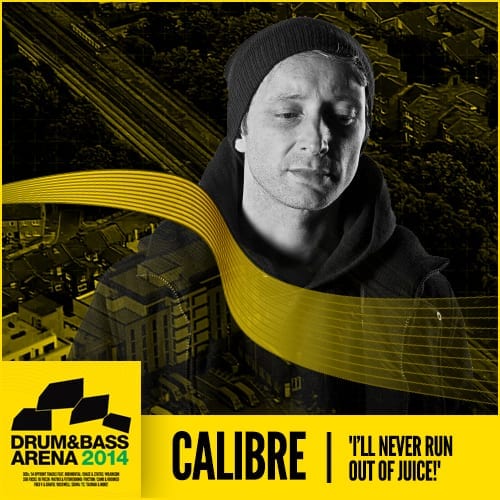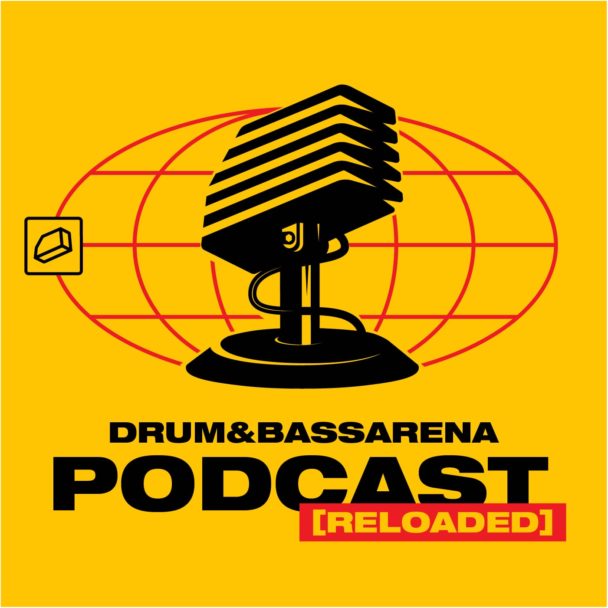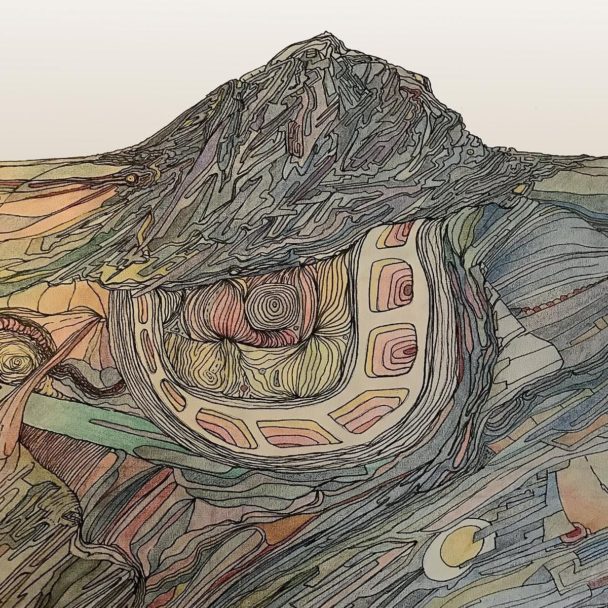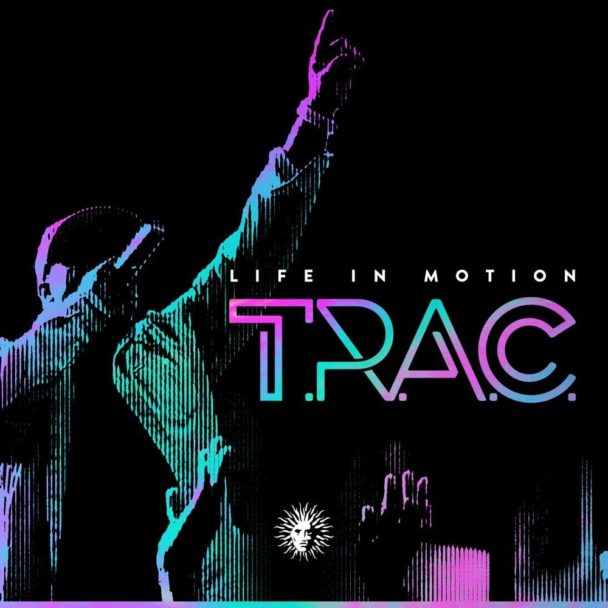To celebrate the release of our biggest spring collection to date, we caught up with one of the most respected – not to mention prolific – men in the game: Calibre.
His remix of Calyx & TeeBee’s Strung Out appears on the 50+ track/three disc album alongside the likes of Kove, Dom & Roland, Rudimental, DJ Fresh, Sub Focus, Wilkinson, Calyx & TeeBee, Camo & Krooked, Taxman, Break, Rockwell, Drumsound & Bassline Smith, Friction and Audio.
httpv://www.youtube.com/watch?v=mVP7CI7OmXk
His debut outing on Ram Records, the remix alone comes with its own story. Plus, with the long-awaited Shelflife Volume 3 landing last week, we thought we’d call the unique individual to find out where he’s at and where he believes drum & bass is at in 2014.
Calyx & TeeBee’s Strung Out remix was your debut on Ram… How did it come about?
I’ve known Andy C from a long time ago. Ram’s always been on my radar but I spend so much time doing my own thing, and they’ve been busy doing their own thing, that I never actually expected to get a remix offer from them. It kinda came from the leftfield a bit for me… That’s how dissected the scene has become! So yeah, it came as a bit of a surprise and was a fun remix to do. It’s a bit different to what I’d usually do as well.
Was the fact that it was a different style tune you’d usually expect from Calyx & TeeBee affect your approach at all?
Yeah it’s always more interesting to remix something that’s a bit subverted or deep as there’s more to work with when thinking about how to apply it to a dancefloor. This means there’s more to fill in on the conceptual side, which can make things easier. That said, I write a lot of deep music myself. Sometimes when I get something deep sent to me it’s not what I want because I want to be able to translate something and repeat it. It’s definitely easier to remix other styles because there’s more creative potential.
I know some producers worry they could spend their best ideas on remixes. Do you ever feel that?
No. I don’t have any premeditated ideas. That’s not how I work. Everything works in the moment. There’s never any ‘I want it to be like this!’ or ‘I want it to be like that!’ I’m just there to coax it along. It never happens in a premeditated fashion. Remixes contain their own uniqueness; they’re different to how I approach making my own music. I’m never afraid of running out of juice!
Can we expect any more remix juice in the near future?
Maybe! But to be honest I’ve had a gut full of remixes in the last year! All I want to do is write my own music and sometimes you end up doing remixes for what feels like forever.
Your own music… Like the new Shelflife album! You gave us the heads up on this last year. What took so long?
Shelflife albums always take time. It takes a long time to go through all my files and material to work out what I want to put on there, whether I want to update or refresh it slightly or whether I’m happy for it to go out. The whole trajectory of it takes longer than a usual album.
Why did these particular tracks stay on the shelf for so long?
A multitude of reasons: I have such a large volume of music that I pass over a lot of things. I actually don’t like a lot of what I do. It’s not until I hear someone playing it a year later and hear it in that context and think ‘oh I wrote that!’ Other reasons are that the track is never finished properly or it’s just not found space on the label.
Sometimes you need space, time or both…
Yeah. There’s always the assumption in music that you’re only as good as your last tune. I’ve learned over the years that this isn’t always the case. In fact it’s barely ever true. I’ve done so much music that it takes a while for me to go through it and for other people – my peers – to digest and understand it. I gave Craig Richards a CD of 26 non D&B tracks I’d made, for example… I know that’s going to take him a while to get through. It’s not instantaneous music, a lot of stuff I do is intentionally written to take a few listens to understand and settle.
26 non D&B tracks, albums worth of material that don’t get released for years… Your proliferation is perplexing. How long does it take for you to create a track, then?
Conceptually tunes come together in a very short space of time. The actual realisation… I can imagine the finished thing within minutes of putting the parts in the project . The arrangement can be done in 40 minutes. The other production elements take more focus, but the bulk of a track is done within the hour.
Do you think that approach is unique to you?
Possibly, I don’t know. But I don’t think there are many artists who can fill a 6 hour set with their own material and still have stuff left over!
What else do you think is unique to you?
I feel like I’m unique because of where I come from and the whole Northern Irish experience. There’s a dislocated Britishness because of being from Belfast and the identity crisis growing up here. That definitely adds to me and how I approach music.
What was the scene like over there when you were growing up?
There was latent prejudice about things for a long time… A lot of energy was dissipated once the ideological hatred started to wane. Because this energy was such a common behaviour for many growing up, it didn’t just disappear… It was just reinvested in cultural stuff like fashion and music. Unfortunately drum & bass became part of that. House music really flourished over here because people felt safe within that scene. Drum & bass didn’t get such a smooth ride. It was very hard to establish anything over here!
Fast forward… What’s D&B’s state of health now and does it excite you?
It’s interesting. I’ve been through various stages of it going up and down. It’s like I’ve sat back and watched a number of forest fires and an equal number of re-growths. Its popularity dies then jumps back in different ways but it’s always there. And the people who really care about it are still here. When I first came through the music press were busy telling everyone it was dead and prominent D&B producers were telling me to get out of it because it was dying on its arse.
Woah… Who?
It wouldn’t be fair to say. It doesn’t matter. How stupid can you be to not realise that the form of things last forever? Once something has been done, it’s there. Its popularity may go up and down with cultural trends but it’s there. It will always be there. The music industry needs to learn this! Before dance music and its many sub genres, trends did kind of disappear but never completely fade away… You still see mods now don’t you? How long ago was that? Once a signature within a tempo is formed it’s there forever. Drum & bass has travelled to every corner of the world and has its own unique lifestyle. Look at eastern Europe right now. Drum & bass is massive over there. It’s the first dance music for most people there. Not house music, but drum & bass. It’s extraordinary, drum & bass has kept on going and going and going. There’s something beautiful about drum & bass, it brings so many different people from different backgrounds. That’s what I love about all forms of music really. But especially drum & bass. So does it excite me, still? Of course it does!
Drum&BassArena 2014 is out now! iTunes, Drum&BassArena Store, Amazon






